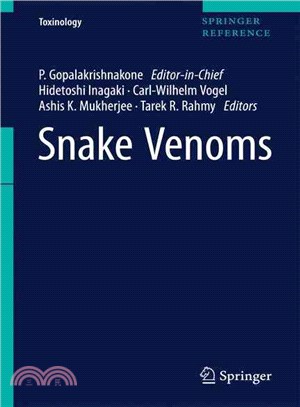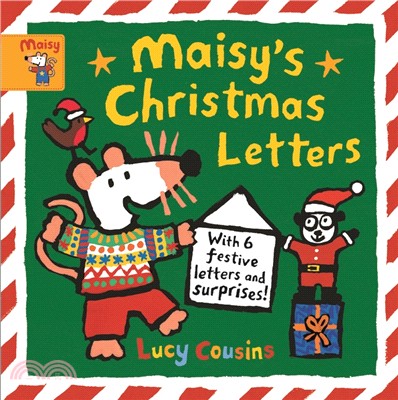Snake Venoms
商品資訊
系列名:Toxinology
ISBN13:9789400764095
出版社:Springer Verlag
作者:P. Gopalakrishnakone (EDT); Hidetoshi Inagaki (EDT); Ashis K. Mukherjee (EDT); Tarek R. Rahmy (EDT); Carl-Wilhelm Vogel (EDT)
出版日:2017/02/06
裝訂:精裝
規格:23.5cm*15.9cm*3.2cm (高/寬/厚)
商品簡介
Initially, because of the inadequate sensitivity of devices and other limitations, only major venom components of the dominant species were studied. However, in last two decades, increased sensitivity of devices and the development of new techniques, such as transcriptomics and proteomics techniques, have permitted us to analyze the structures and functions of rare species and to identify novel minor components. As a result, the number of venom components identified is increasing dramatically and the physiological functions of each component is more deeply understood. The scope of this book provides the readers an updated and comprehensive presentation on snake venoms. The subjects are divided into six sections, starting with the overview of snake venom compositions in Malaysian species, followed by description of enzymes and enzyme inhibitors contained in snake venoms. Also discussed are the effects of snake venom on cellular receptors, ion channels, blood, and lymph, as well as cytotoxic and antimicrobial molecules present in snake venoms. The last section covers the clinical consequences of envenomation and the management of snakebites using antivenins.
作者簡介
P. Gopalakrishnakone, M.B.B.S., Ph.D., F.A.M.S., D.Sc., is professor of anatomy and chairman of the Venom and Toxin Research Programme at Yong Loo Lin School of Medicine, National University of Singapore, where he has become an emeritus professor. In addition, he also has assumed the position of professor of anatomy at the Singapore Institute of Technology, Health and Social Sciences Cluster. Prof. Gopalakrishnakone is also a consultant to the Defence Science Organization in Singapore; adjunct senior research scientist at the Defence Medical Research Institute; and an honorary principal fellow at the Australian Venom Research Unit, University of Melbourne, Australia. His research studies include structure function studies, toxin detection, biosensors, antitoxins and neutralization factors, toxicogenomics and expression studies, antimicrobial peptides from venoms and toxins, and PLA2 inhibitors as potential drug candidates for inflammatory diseases. The techniques he employs include quantum dots to toxinology, computational biology, microarrays, and protein chips. Prof. Gopalakrishnakone has more than 160 international publications, four books, about 350 conference presentations, and 10 patent applications. He has been an active member of the International Society on Toxinology (IST) for 30 years and was president from 2008 to 2012. He is also the founder president of its Asia Pacific Section, a council member, as well as an editorial board member of Toxicon, the society’s official journal. His research awards include the Outstanding University Researcher Award from the National University of Singapore (1998); Ministerial Citation, NSTB Year 2000 Award in Singapore; and the Research Excellence Award from the Faculty of Medicine at NUS (2003). His awards in teaching include Faculty Teaching Excellence Award 2003/4 and NUS Teaching Excellence Award 2003/4. Prof. Gopalakrishnakone also received the Annual Teaching Excellence Award in 2010 at both university and faculty levels.
Hidetoshi Inagaki is senior researcher at the National Institute of Advanced Industrial Science and Technology, in Japan, since 2001, working on the bioactive peptides of venomous animals, such as snakes and ants. During that time, from April 2006 to March 2007, he worked at CSTP (Council for Science and Technology Policy) on the “Guidelines on the Derivation and Distribution of Human Embryonic Stem Cells” and other science policies. From April 1994 to March 2001, Inagaki was a researcher at the National Industrial Research Institute of Nagoya, Japan. Inagaki received his Ph.D. from Nagoya University, Japan, in 1994, with time spent in Beth Israel Hospital, Boston, United States, from August 1991 to March 1992. He was also a graduate (April 1989-–March 1991) and an undergraduate (April 1984–March 1989) at Nagoya University, Japan. For last five years, his research group has been working on the directed evolution of bioactive peptides. Using directed evolution, the group could generate agonist and antagonist like molecules of receptors, and enzyme inhibitors.
Carl-Wilhelm Vogel received his M.D. degree and Ph.D. degree in biochemistry from the University of Hamburg in Germany. For three-and-a-half years, Dr. Vogel was a postdoctoral research fellow in molecular immunology at Scripps Clinic and Research Foundation in La Jolla, California. He completed a medical internship in Germany and four years of residency training in clinical pathology at Georgetown University in Washington, D.C., and at Indiana University/Purdue University in Indianapolis. He is a licensed physician and a board-certified clinical pathologist both in the USA and Germany. He was on the faculty of Georgetown University School of Medicine for approximately nine years in the Departments of Biochemistry and Molecular Biology and Internal Medicine, and a member of the Lombardi Cancer Center, before assuming the chairmanship of the Department of Biochemistry and Molecular Biology at the University of Hamburg in 1990. In 1999 he became Director of the Cancer Research Center of Hawaii at the University of Hawaii, a position he held for about a decade. He currently is a full professor at the same institution. His research interests have been in the area of basic biomedical research with particular emphasis on the immunological aspects of cancer as well as the development of novel therapeutic concepts for diseases with complement pathogenesis, based on the complement-depleting activity of cobra venom factor. His research has been supported continuously by peer-reviewed grants since 1983, mainly from the National Institutes of Health. He is the author of well over 100 publications and patents.
Ashis K. Mukherjee is currently serving as a professor in the Department of Molecular Biology and Biotechnology at Tezpur University, Assam, India. Dr. A. K. Mukherjee received a Bachelor of Science in Chemistry (Hons.) from Banaras Hindu University, Varanasi, India, in 1990 and a Master of Science in Biochemistry from the same university in 1992. He was awarded a Ph.D. degree in 1998 from the Department of Biochemistry, Burdwan Medical College, Burdwan University, India. His topic of Ph.D. research was on biochemistry and pathophysiology of Indian cobra and Russell’s Viper venom. The current research activity of Dr. Mukherjee broadly includes biochemistry and drug discovery from snake venom as well as microbial biotechnology. His research has been funded by several extramural research grants. In addition to receiving several other prestigious awards, he was awarded a DST-BOYSCAST fellowship from the Government of India to work on spider venom toxins at the University of Connecticut Health Center, in Connecticut, USA (2002–2003), and the DBT-Crest award (2011–2012) from the Government of India to work as a visiting scientists at the School of Biological Sciences, University of Northern Colorado, in Colorado, USA. He is the recipient of Best Researcher Award of Tezpur Univeristy in 2008. Dr. Mukherjee has published more than sixty research papers in peer-reviewed journals and contributed several book chapters. He is Editor-in-Chief of the newsletter published by the Toxinological Society of India, besides being the editorial board member of many journals. He has guided six graduate students for the Ph.D. degree and twenty nine students for the M. Sc. dissertation work. Dr. Mukherjee also teaches numerous graduate and undergraduate courses in biochemistry, enzymology, toxinology and fermentation technology.
Tarek R. Rahmy font-family: Calibri, sans-serif;">, Ph.D., is currently the vice president for Teaching and Student Affairs at Suez Canal University (SCU). He is a professor of histology and cytology, Zoology Department, Faculty of Science; head of the same department and director of the University Teaching Development Center; and dean of Fish Farming and Technology Institute at SCU. He graduated from the Zoology Department, Faculty of Science, SCU, in 1981, and subsequently worked as demonstrator in the same department, before going to Colorado State University (USA) where he obtained his Ph.D. in 1989 through a joint supervision program, before working as a lecturer, an associate professor and a professor at the Zoology Department at SCU (2001). His main interests are in toxinology, especially in the pathogenesis of snake and scorpion envenoming as well as in the use of natural products to neutralize their effects. He is a member of the National Committee of Toxicology in Egypt, and the founder and chairman of the Egyptian Society of Natural Toxins (2003 to date). He had obtained many research grants from Egypt, UAE, and Saudi Arabia, and organized six international conferences and four workshops on natural toxins. He also is the co-editor of the Egyptian Journal of Natural Toxins (12 volumes) and a peer reviewer for quality assurance at the Egyptian Council of Universities, has written and revised chapters of several books on vertebrate biology, and participated in the translation of the biological Glossary of Campbell Biology. He has conducted many field surveys in Egypt, USA, UAE, and Saudi Arabia on the arid ecosystems with focus on venomous snakes, and published 62 scientific papers. He has taught 16 courses on different aspects of histology, cytology, cell biology, histochemistry and vertebrate biology, and natural toxins, as well as supervised more than 23 M.Sc and Ph.D. students. He has participated in more than 50 conferences, seminars, and workshops, and is a member of national and international committees that deal with toxicology.
主題書展
更多書展今日66折
您曾經瀏覽過的商品
購物須知
外文書商品之書封,為出版社提供之樣本。實際出貨商品,以出版社所提供之現有版本為主。部份書籍,因出版社供應狀況特殊,匯率將依實際狀況做調整。
無庫存之商品,在您完成訂單程序之後,將以空運的方式為你下單調貨。為了縮短等待的時間,建議您將外文書與其他商品分開下單,以獲得最快的取貨速度,平均調貨時間為1~2個月。
為了保護您的權益,「三民網路書店」提供會員七日商品鑑賞期(收到商品為起始日)。
若要辦理退貨,請在商品鑑賞期內寄回,且商品必須是全新狀態與完整包裝(商品、附件、發票、隨貨贈品等)否則恕不接受退貨。
























